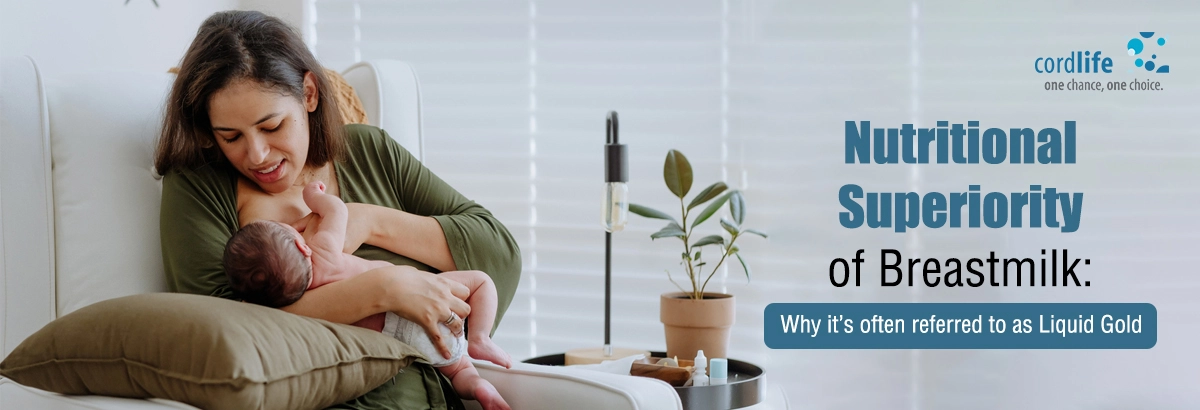Table of Contents
Breastfeeding is one of the most essential aspects for moms and newborns. Breastfeeding starts at the “golden hour” of the baby’s birth. The World Health Organization (WHO) recommends breastfeeding newborns for at least 6 months to 1 year from birth. Breastmilk, also known as colostrum, undergoes several stages of transformation as your baby grows up. But, the colostrum that gets secreted during the initial hours of the baby’s birth, is known as “liquid gold” or “wonder food”.
Why is Colostrum Known as “Liquid Gold”?
Colostrum is the first breast milk you produce, and its composition has positive effects on your baby. It includes:
Boosts the Baby’s Immunity
Colostrum – the first breastmilk – has rich sources of immunoglobulins that help build the baby’s immune system that ultimately battles bacteria, fungi, and viruses. Simultaneously, it has lactoferrin, which damages cancer-forming cells in the baby’s body.
Establishes a Healthy Gut
Colostrum coats the baby’s intestines and promotes the growth of Lactobacillus Bifidus bacteria in the baby’s digestive tract. As a prebiotic, it helps the baby’s microbiome grow, further aiding the baby in passing their first stool and reducing the chances of jaundice in the newborn.
Gives Your Baby’s Brain a Boost
Breast milk boosts a baby’s brain when consumed in large quantities. After all, breastmilk contains all the essential nutrients – fats, minerals, and proteins to support the baby’s brain development.
Prevents Low Blood Sugar Levels in the Newborn
Immediately or within 24 hours of your baby’s birth, the little one may undergo a few blood tests. If there’s a tendency to low blood sugar levels (also known as neonatal hypoglycaemia) found in your baby after blood tests due to gestational diabetes or premature birth or not producing enough glucose, breastfeeding the baby, and skin-to-skin contact while feeding can be the solution.
Prevents Obesity in Babies
Since the baby inside you takes in the food you consume, you may give birth to an obese baby. Breastmilk has obestatin. Obestatin is a hormone that reduces food intake and weight gain in a baby. The World Health Organisation (WHO) recommends exclusive breastfeeding for the first 6 months of your baby’s life. That means breastfeeding your baby for at least 6 months lowers obesity risk by 25%.
Breastfeeding establishes an emotional connection with your baby immediately. Additionally, skin-to-skin contact enhances bonding between you and your newborn child. All you need to do is learn breastfeeding skills, and ensure that you feed your baby as per doctor’s recommendation.
